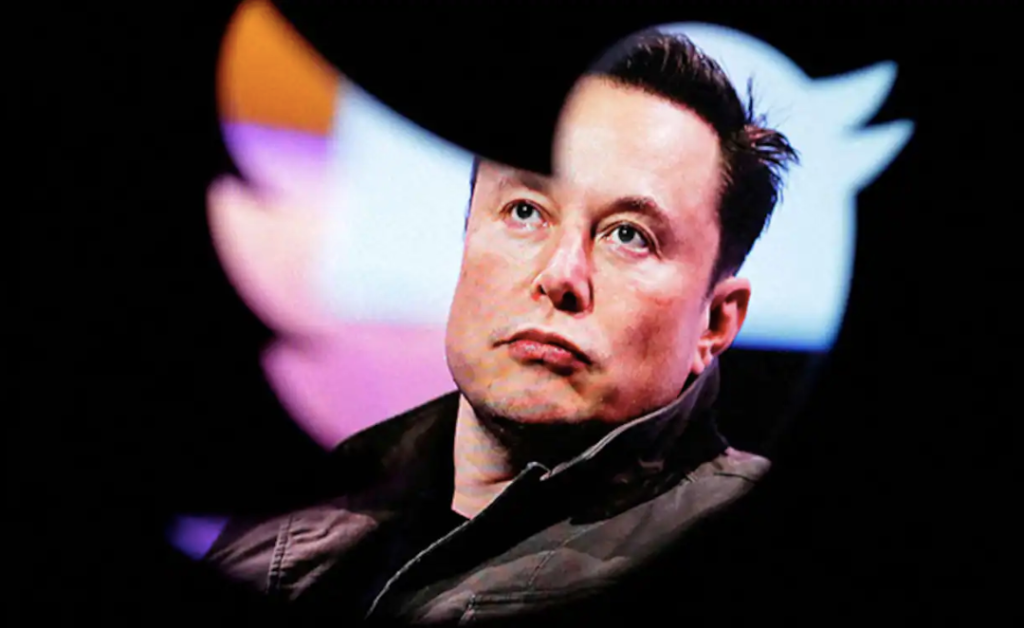|
Getting your Trinity Audio player ready...
|
Twitter has experienced a significant decline in advertising revenue, losing almost half of its earnings since its acquisition by Elon Musk for $44 billion (£33.6 billion) in October last year, according to its owner’s recent disclosure.
Despite expectations of increased sales in June, the company failed to achieve the anticipated growth. However, there are more optimistic prospects for July, according to Musk.
Upon taking over Twitter in 2022, Musk implemented cost-cutting measures that included laying off roughly half of the company’s 7,500 employees. Nevertheless, Twitter has struggled to maintain a positive cash flow and faces a substantial debt burden.
Meanwhile, rival social media app Threads has emerged as a significant competitor, boasting an estimated user base of 150 million. Its integration with Instagram, a platform designed by Meta, grants Threads access to a potential two billion users.
Musk acknowledged the decline in Twitter’s ad revenue without specifying a time frame, stating that the company needs to achieve positive cash flow before considering other options.
Lucy Coutts, investment director at JM Finn, expressed confidence in Musk’s ability to turn Twitter around but cautioned that it might take longer than anticipated. She also mentioned Musk’s obligation to pay off $13 billion in debt by the end of July, which could potentially exert pressure on Tesla’s shares if he is forced to sell more of his stake in the electric car-maker.
In his role as CEO and majority shareholder of Tesla, Musk is preparing to announce the company’s latest quarterly financial results on Wednesday.
Despite extensive efforts to reduce costs, Twitter has struggled to win back advertisers who departed after changes were made to its content moderation policies. Musk previously indicated in an interview with the BBC that most advertisers had returned, but the recent decline in revenue suggests otherwise.
Meghana Dhar, former head of partnerships at Snap and Meta, noted that Twitter was already facing challenges prior to Musk’s acquisition. She described the current situation as difficult for both Musk and Twitter, emphasizing the steady decline in revenue since before Musk’s involvement.
To prioritize advertising sales, Twitter appointed Linda Yaccarino, former head of advertising at NBCUniversal, as its chief executive in June. Yaccarino has outlined plans to focus on video, creator, and commerce partnerships. The company is reportedly engaged in preliminary discussions with political and entertainment figures, payment service providers, and news and media publishers.
As Twitter navigates these challenges under Musk’s ownership, the company’s future prospects and ability to regain its standing in the advertising market will be closely watched by industry observers.
Twitter’s new CEO, Linda Yaccarino, aims to steer the company toward recovery by prioritizing video content, creator collaborations, and commerce partnerships. Early talks are underway with various stakeholders, including political and entertainment figures, payment service providers, and news and media publishers. These initiatives reflect Twitter’s commitment to diversifying its revenue streams and revitalizing its advertising appeal.
However, industry experts acknowledge the uphill battle that lies ahead for Musk and Twitter. Meghana Dhar, with experience at Snap and Meta, points out the steady decline in Twitter’s revenue even before Musk’s involvement. The decline highlights the need for a comprehensive strategy to address the underlying issues that have plagued the platform.
Despite the challenges, some analysts remain optimistic about Twitter’s potential under Musk’s leadership. Lucy Coutts, investment director at JM Finn, believes Musk can turn Twitter around, but cautions that it may take more time than initially anticipated. The company’s aggressive cost-cutting measures and efforts to refocus on advertising sales demonstrate a commitment to restoring its financial health.
As Twitter works to regain advertisers’ trust and overcome its financial hurdles, Musk’s attention will also be divided. With Tesla’s latest quarterly financial results on the horizon, his focus will be split between both companies. The outcome of these endeavors will undoubtedly have implications for the future trajectory of both Twitter and Tesla.
The decline in advertising revenue serves as a reminder that acquisitions by high-profile figures do not guarantee immediate success. Twitter’s struggle underscores the challenges of reviving a social media platform in a competitive landscape. Only time will tell if the ongoing efforts led by Musk and Yaccarino will be enough to reinvigorate Twitter’s revenue and restore its prominence in the advertising market.
As the company continues to navigate these critical junctures, industry observers will closely monitor Twitter’s progress and assess its ability to adapt and thrive in the evolving digital landscape.



